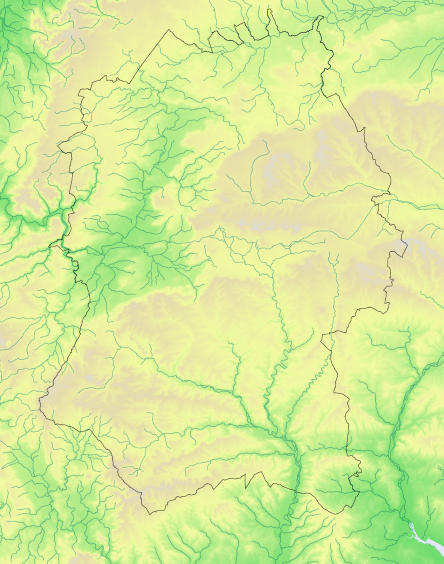Atlas species lists
- Breeding distribution 1995–2000
- Summer abundance 1995–2000
- Winter distribution 1995–2000
- Winter abundance 1995–2000
- Breeding distribution 2007–2012
- Summer abundance 2007–2012
- Winter distribution 2007–2012
- Winter abundance 2007–2012
- Breeding distribution change
- Summer abundance change
- Winter distribution change
- Winter abundance change
More Wigeon maps
- Breeding distribution 1995–2000
- Summer abundance 1995–2000
- Winter distribution 1995–2000
- Winter abundance 1995–2000
- Breeding distribution 2007–2012
- Summer abundance 2007–2012
- Winter distribution 2007–2012
- Winter abundance 2007–2012
- Breeding distribution change
- Summer abundance change
- Winter distribution change
- Winter abundance change
More maps for this atlas
Map explanation
This map shows the winter relative abundance of the species in Wiltshire, based on variation from the average, as revealed by the fieldwork for Birds of Wiltshire (Wiltshire Ornithological Society 2007).
Key
Relative to average
Nos tetrads

>50% fewer
4
1%

25-50% fewer
0
0%

Average +/- 25%
0
0%

25-100% more
2
<1%

>100% more
2
<1%
Total
8
2%

Not surveyed
The UK’s commonest winter duck, originally congregating mostly on estuaries but in recent decades increasingly seen inland. The national winter population increased by 63% between 1983/84 and 2008-09, while the range increased by 27% over a similar period. First proved breeding in the UK in 1834 it now breeds regularly in the Pennines and northern Scotland with scattered records as far south as central and eastern England.
In Wiltshire the winter population is estimated to fluctuate between 500 and 2000 with the higher numbers coinciding with harder winters. Birds of Wiltshire showed main concentrations at the CWP and in the Avon valley south of Salisbury. On the national winter relative abundance map in Bird Atlas 2007-2011 the CWP shows up clearly as an area of particular concentration. The lower Avon valley also continues to be important on the latest maps, with other concentrations at Coate Water and on the River Kennet. Altogether the species was recorded in winter in 64 Wiltshire tetrads, spread across twenty-four 10km squares, a 50% increase since Winter Atlas 1981-84.
There have been no confirmed records of the species breeding in Wiltshire although small numbers are recorded in most summers - Bird Atlas 2007-2011 recorded it in 12 tetrads. A brood of four seen at Wilton Water in 1989 were assumed to be escapes and possibly hybrids. The “probable” breeding record in tetrad SU09B in Bird Atlas 2007-2011 related to a pair recorded there on 8 April 2008, which were presumably late departing migrants – there were no subsequent sightings of them recorded.
References
The following references are used throughout these species accounts, in the abbreviated form given in quotation marks:
“1968-72 Breeding Atlas” – Sharrack, J.T.R. 1976: The Atlas of Breeding Birds in Britain and Ireland. T. & A. Poyser
“1981-84 Winter Atlas” – Lack, P.C. 1986: The Atlas of Wintering Birds in Britain and Ireland. T. & A. Poyser
“1988-91 Breeding Atlas” – Gibbons, D.W., Reid, J.B. & Chapman, R.A. 1993: The New Atlas of Breeding Birds in Britain and Ireland 1988-91. T. & A. Poyser
“Birds of Wiltshire” – Ferguson-Lees, I.J. et al. 2007 : Birds of Wiltshire, published by the tetrad atlas group of the Wiltshire Ornithological Society after mapping fieldwork 1995-2000. Wiltshire Ornithological Society.
“Bird Atlas 2007-2011” – Balmer, D.E., Gillings, S., Caffrey, B.J., Swann, R.L., Downie, I.S. and Fuller, R.J. 2013: Bird Atlas 2007-2011: the Breeding and Wintering Birds of Britain and Ireland
“WTA2” – ("Wiltshire Tetrad Atlas 2 ") the present electronic publication, bringing together the Wiltshire data from “Birds of Wiltshire” and “Bird Atlas 2007-11”, together with data from further fieldwork carried out in 2011 and 2012.
"Hobby" - the annual bird report of the Wiltshire Ornithological Society.

